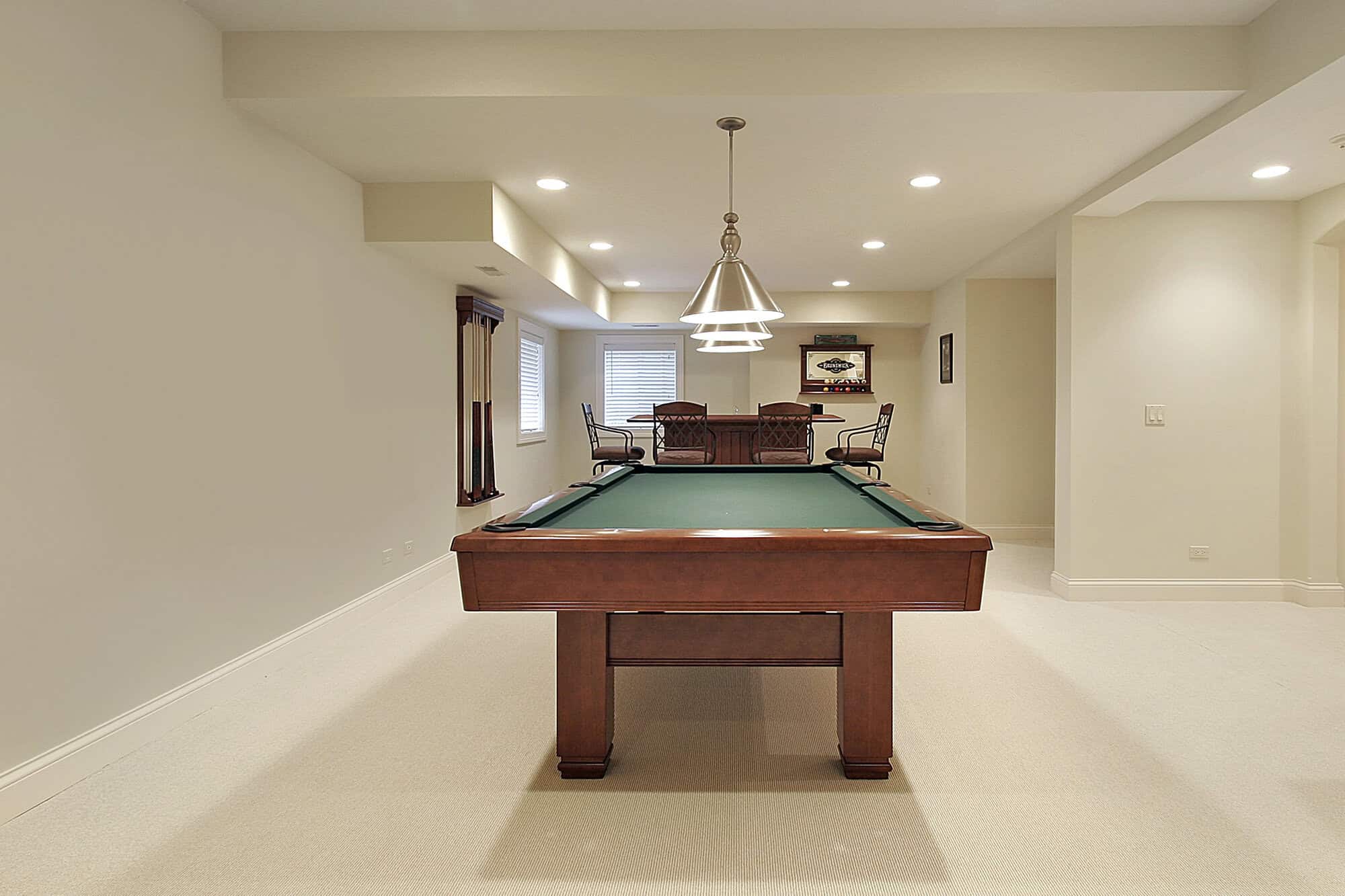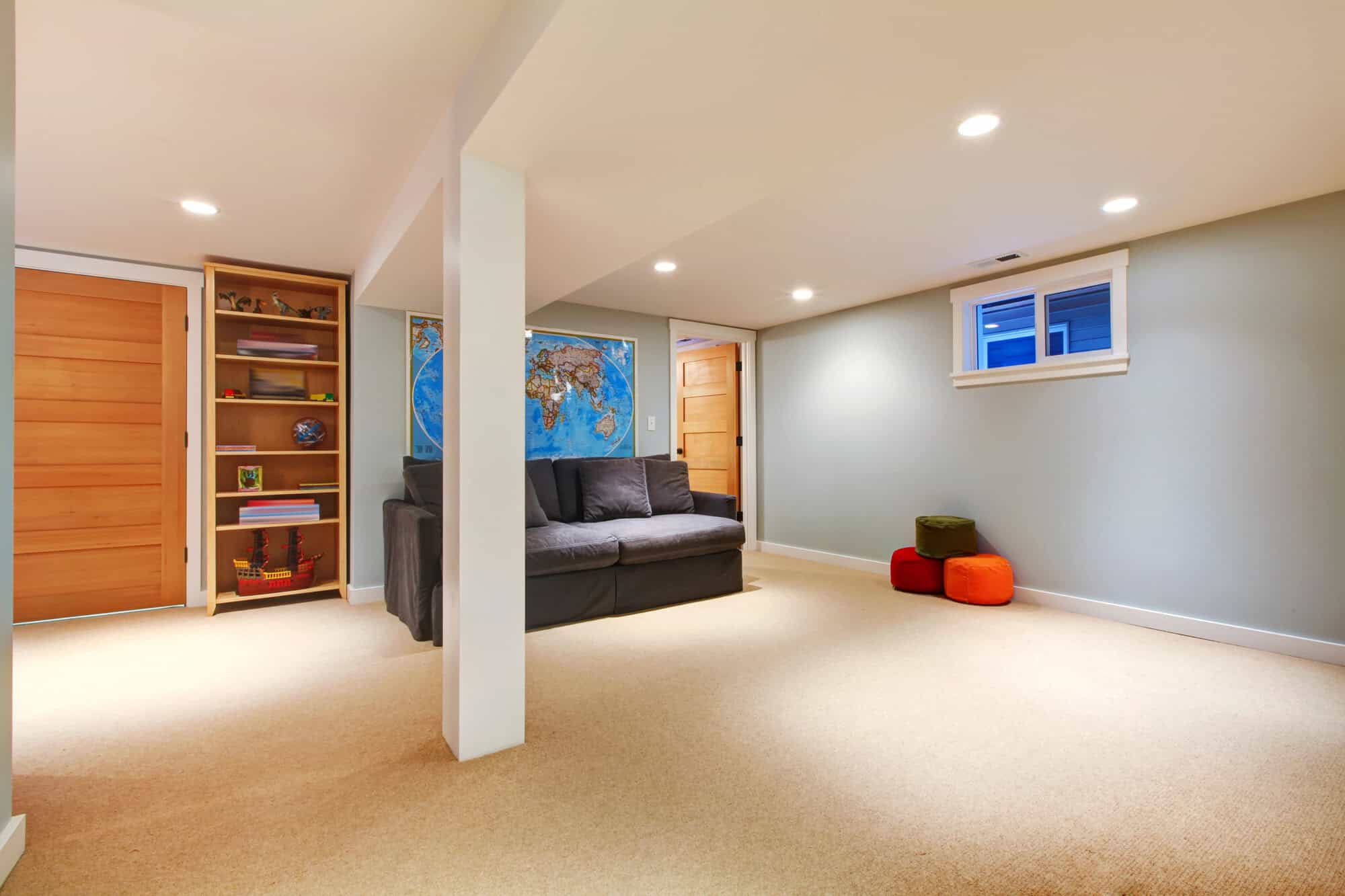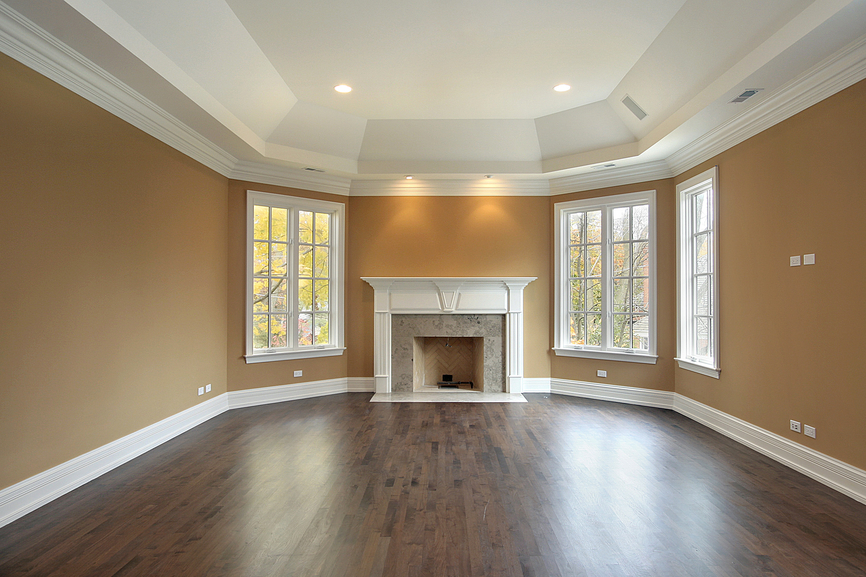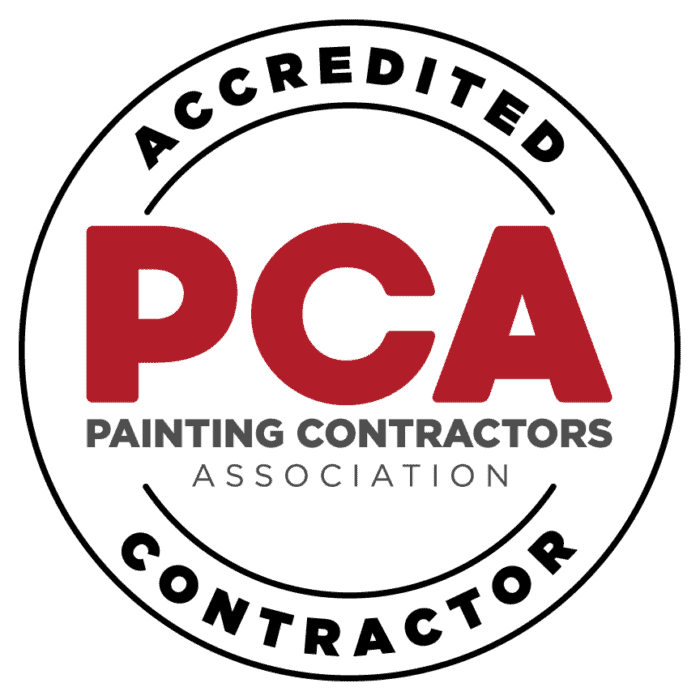Ever walk into a room and feel like the walls are closing in on you? If you’re wondering how to make a room look bigger with paint, you don’t need to start knocking down walls or tossing out furniture. A few wise choices with color and finish can work wonders for your space and your mood.
We’ve worked with countless homeowners in Spotsylvania, VA who’ve had the same issue: a cramped bedroom, a narrow hallway, a kitchen that feels more like a closet than a gathering space. With the right combination of paint, light, and layout, you can create the illusion of openness without any heavy remodeling. It’s all about using paint as a design tool.
Let’s break down some practical and realistic tips you can use today to make your room feel fresh, airy, and much more spacious, without sacrificing comfort or personality.
Key Takeaways:
Light paint colors reflect more light and help create an open, airy feeling.
- Dark accent walls add depth without making the room feel smaller.
- Painting the ceiling a lighter shade draws the eye upward, creating a sense of greater visual height.
- Mirrors and minimal clutter work well with paint to visually expand space.
- Keeping a simple color scheme creates better flow and reduces visual heaviness.
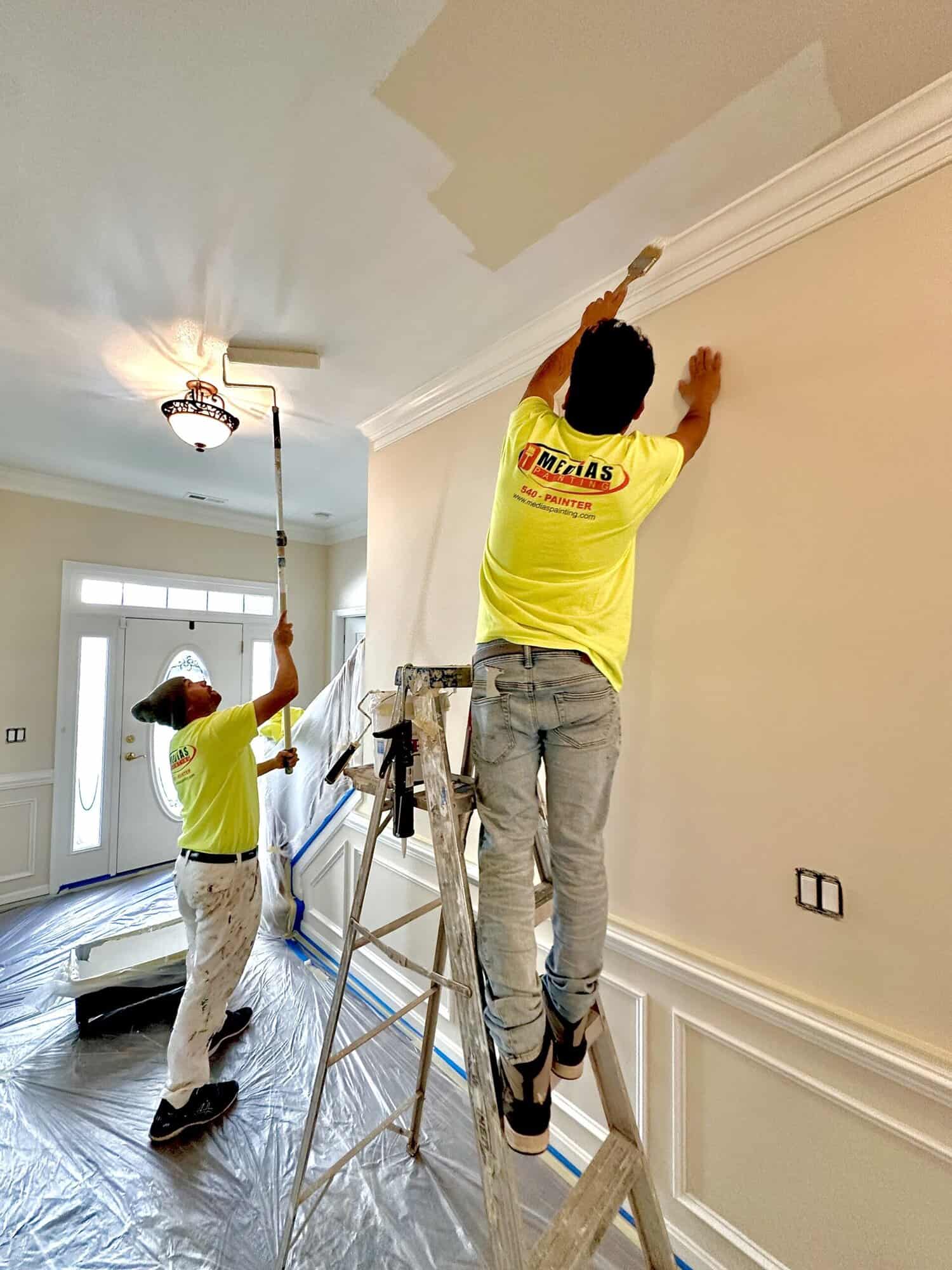
How to Make a Room Look Bigger with Paint?
Ever walk into your bedroom and feel like the walls are creeping in? Or maybe your living room gets great sunlight but still feels boxed in? These are common problems where layouts weren’t always designed with openness in mind.
How to make a room look bigger with paint isn’t about trendy tricks; it’s about using simple, proven methods that actually make your space feel lighter, taller, and more breathable. Here are some tips you can consider for your next interior painting project:
Tip 1: Light Colors Open Things Up
One of the easiest tricks? Stick to lighter shades. Soft whites, warm beiges, light greys, and pastels reflect more light, helping brighten the entire room.
Here’s why this works:
- Light paint colors bounce both natural and artificial light, visually stretching the space.
- Pale walls reduce harsh contrast, allowing the eye to move more freely and creating a sense of openness.
Some favorites we’ve used in Spotsylvania homes:
- Eggshell white for ceilings and baseboards
- Soft greige in the living room
- Pale blue or light green in bedrooms for a relaxing feel
Pair these with light wood or beige flooring, mirrors, and low-profile furniture to double the effect. Keep the color scheme consistent across connecting rooms to avoid visually breaking up the space.
Tip 2: Create Depth with Dark Accent Walls
This might sound counterintuitive, but hear me out. A single dark accent wall can actually make your room feel deeper. It draws your focus and creates contrast, which tricks the brain into perceiving more dimensions.
Here’s where it works best:
- Behind the bed in a bedroom
- In the living room, where your TV or artwork sits
- Along the dining room wall with built-in shelving
Try moody shades of blue, like navy or charcoal, for a cozy yet dramatic vibe. Balance it out with lighter trim and ceiling paint to keep the space feeling open. This is a great trick for those interested in bold color without going full-on cave mode.
Tip 3: Paint the Ceiling a Brighter Shade
One of the most overlooked areas in a room? The ceiling.
If you’re still using standard builder’s white or off-white, you’re missing out. Using a bright or slightly lighter ceiling paint than the walls can actually make the ceiling appear higher.
Why this matters:
- A higher-looking ceiling adds volume to the room
- It encourages upward movement of the eye
Pro tip: Go with a semi-gloss or satin finish on the ceiling if you have smooth drywall. It reflects light better and adds just a bit of dimension.
If you’re painting ceilings near kitchen cabinets, this ties in well with our post on bold kitchen cabinet colors that add character.
Tip 4: Vertical Design = More Height
Whether it’s in the bedroom, bathroom, or living room, vertical lines visually lengthen a wall. This doesn’t mean you need floor-to-ceiling stripes, either.
Here are easy ways to incorporate vertical lines:
- Install and paint vertical shiplap or paneling
- Add vertical wall molding and use a slightly darker or glossier finish for texture
- Use wallpaper with thin vertical patterns in light shades like yellow, taupe, or soft green
These design details give the illusion of height, especially in rooms with low ceilings.
Tip 5: Mirror Placement + Paint = Instant Space Upgrade
Mirrors aren’t just decorative. They reflect both light and color, which amplifies any visual effect your paint is already creating.
Smart mirror tips:
- Hang a large mirror opposite a window to bounce natural light
- Use mirrored furniture in tighter areas like bathrooms or hallways
- Stick to light-painted frames to avoid adding visual weight
- Pairing mirrors with a consistent paint color palette and clean-lined furniture is a combo that works almost every time.
Also, don’t forget to test your paint finish around the mirror placement. Glossy finishes will double the effect.
Tip 6: Flooring and Trim Play a Big Role Too
Paint is powerful, but it works best when everything else in the room cooperates. Your floor and trim color can make or break the effect you’re going for.
Try this:
- Use light wood or white tile floors with pale walls to open up space
- Keep baseboards and crown molding a few shades lighter than your wall color
- Opt for satin or semi-gloss trim to reflect light and create contrast
Want to add personality without making things feel crowded? Try a glossy beige on trim with flat wall paint to create texture without shrinking the space.
Tip 7: Stick to a Simple Color Scheme
One mistake we often see with small rooms is overthinking the color palette. When every wall is a different hue or the furniture doesn’t match the paint, it disrupts the flow.
Stick to no more than three colors in a room:
- A dominant wall color
- A secondary shade for trim or accents
- A pop color for furniture, art, or a rug
The most popular combos for small rooms in Spotsylvania homes include:
- Light grey walls, white trim, navy blue decor
- Pale yellow walls, beige trim, green accents
- Shades of blue on walls with wood floors and white built-ins
If you’re working with nearby cabinets, you’ll love our blog on how paint sheen affects cabinet finishes.
Tip 8: Lighting and Paint Go Hand in Hand
Paint can only do so much without good lighting. Natural light helps paint colors reach their full potential. If your room doesn’t get much daylight, lean on lamps, sconces, and overheads to fill in the gaps.
Keep in mind:
- Avoid heavy curtains that block natural light
- Use LED bulbs with a color temperature between 2700K and 3000K for a soft white glow
- Lighter walls bounce artificial light too, not just sunlight
Final Thoughts
A few gallons of the right paint can go a long way in making your space feel less cramped and more comfortable. Whether you’re reworking your living room, bedroom, or bathroom, subtle color shifts and clever placement techniques can make all the difference. Pairing the right interior design tricks with a solid color scheme can turn even the tightest rooms into relaxing, breathable spaces.
At Medias Painting LLC, our expert painters in Spotsylvania, VA, know exactly how to bring out the best in small spaces, and we’re happy to help!
Here’s what you can expect when working with us:
- Consultation: We help you select colors that open up and brighten your space
- Prep work: Floors, furniture, and trim are protected from start to finish
- Precision painting: Our experienced interior and exterior painters deliver clean, professional results
- Clean-up and review: We don’t leave until you’re completely satisfied
Ready to make your home feel bigger and brighter?
Call Medias Painting LLC for a FREE estimate today. We proudly serve Dumfries, Manassas, Warrenton, VA, and the surrounding areas. Call us at 540-210-1363 to get started!

